Ever wondered why your home-brewed coffee doesn't taste quite like the perfect cup from your favorite café? The secret might just be in the water!
While most of us focus on the type of coffee beans or the brewing method, the quality of water used often takes a backseat.
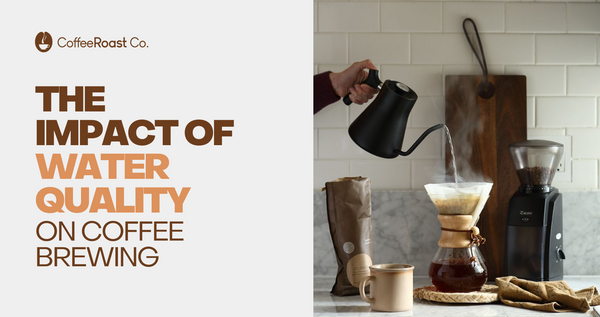
And yet, water plays an indispensable role in brewing. Factors such as the presence or lack of minerals, hardness, pH level, and purity can turn a plain cup into better-tasting coffee.
This article aims to shed light on the often overlooked aspect when brewing coffee: water quality.
Join us as we discover the best water for coffee. Learn about tap water, distilled water, reverse osmosis water and the other kinds of water that you should — and shouldn't use — when crafting that oh-so-delicious brew.
The Science Behind Coffee and Water
The Role of Water in Brewing Coffee
Water isn't just a medium that transports flavors from the coffee grounds; it's the primary agent responsible for extracting the compounds that give coffee its unique taste and aroma.
When hot water comes into contact with coffee grounds, it dissolves soluble flavonoids, aromatics, and compounds, transferring them into the brew.
Contact between the water and the grounds, known as extraction, is the heart of the coffee-making process.
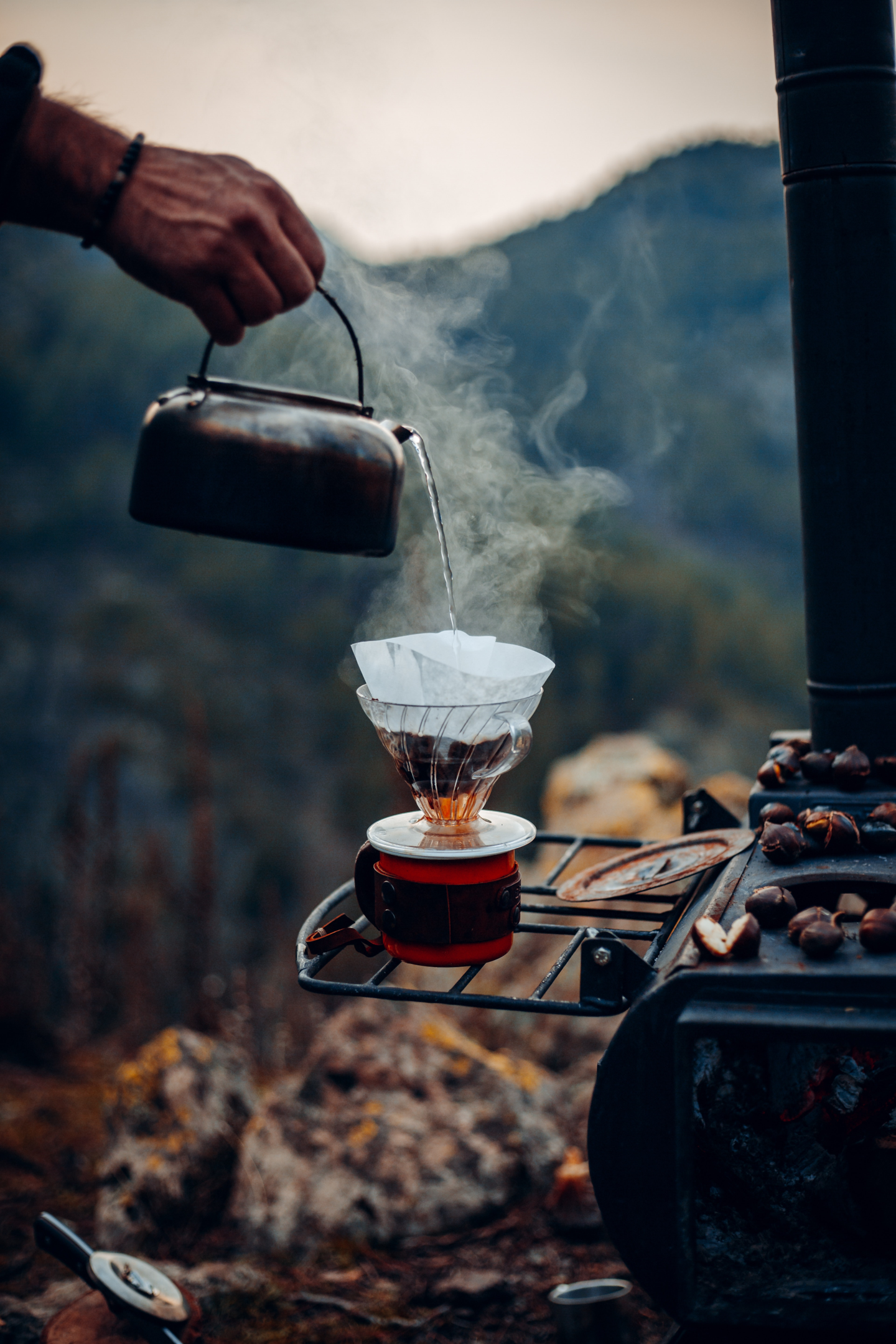
Water is not just the solvent in coffee brewing — it's also the main ingredient. A typical cup of black coffee is about 98-99% water. This means that the quality of the water you use has a significant impact on the quality of your brew.
The Significance of Water pH in Coffee Brewing
Water pH is crucial in determining coffee flavor and quality. pH is a measure of how acidic or basic water is, with 7 being considered neutral. Here's how it impacts the brewing process:
-
The Ideal Starting Point - Neutral pH
Water with a pH of 7 is ideal because it neither adds nor subtracts acidity from the beans themselves. This allows the beans' inherent flavors and aromas to shine through, giving you a great cup that's true to its origin.
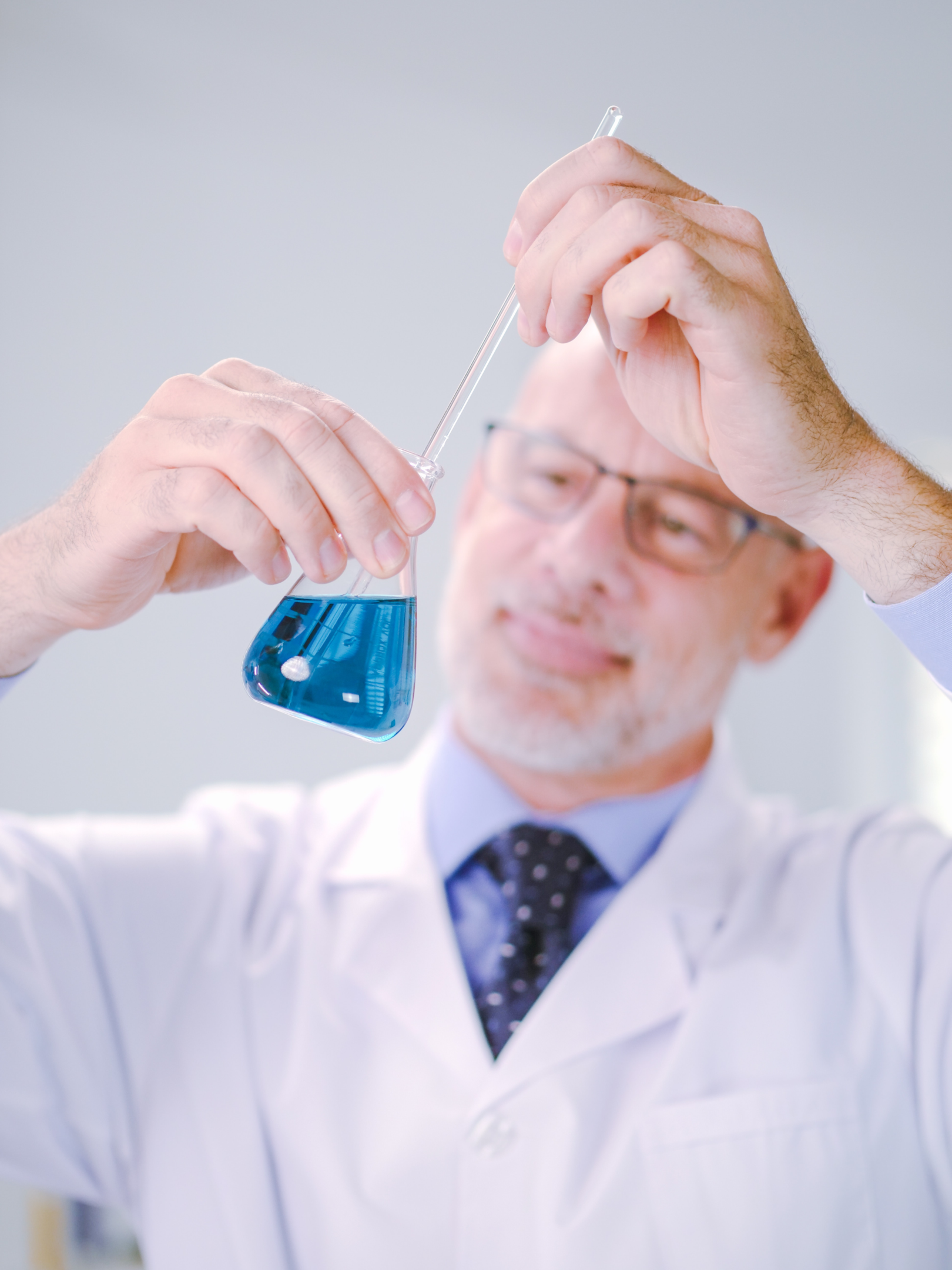
-
Acidic Water: A Double-Edged Sword
Water that's too acidic can lead to over-extraction, making your brew taste sour or overly bright. On the other hand, water that's slightly acidic can enhance certain flavor notes in coffee beans with fruity or citrus undertones.
Water Hardness and Scale Buildup
Water hardness, often linked with pH, refers to the concentration of minerals in the water. Hard water can lead to scale buildup in coffee equipment, especially in espresso machines. Scale buildup not only affects the machine's efficiency but can also alter the taste of the coffee.
Protecting Your Equipment
Coffee makers, espresso machines in particular, are susceptible to damage from hard water. Using soft water is ideal in preventing scale buildup. The less minerals there are in the water, the less scale there is.
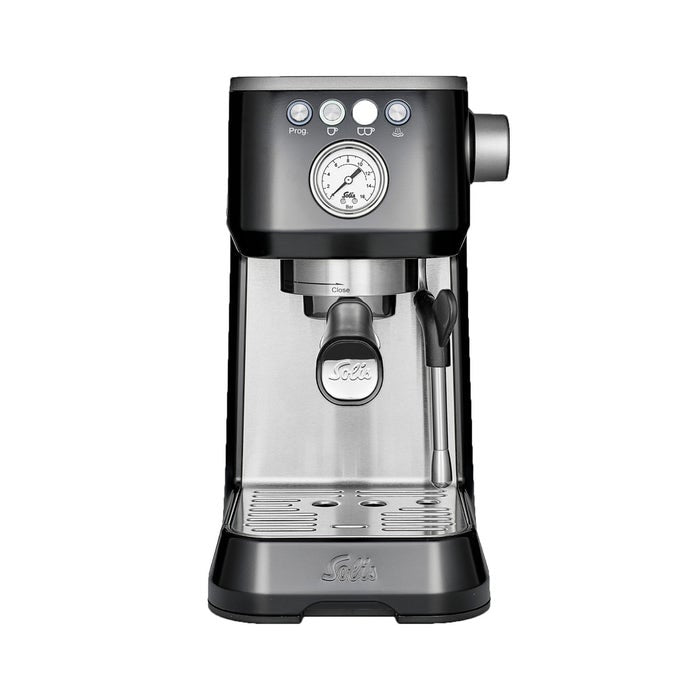
You should regularly descale your espresso machine with commercial descaling tablets, or use DIY baking soda, lemon, or vinegar solutions to descale your coffee maker.
Always refer to the manufacturer's instructions for your specific coffee brewing equipment, as some may have recommendations or warnings about certain descaling methods.
Water Filter Pitchers: A Simple Solution
For those who don't have access to soft water, a water filter pitcher like Peak Water can be a game-changer. A water filter pitcher doesn't only help in removing impurities but can also balance water's pH, making it ideal for brewing.
By ensuring the water is neither too acidic nor too basic, you can achieve a consistent and flavorful brew every time.
The Magic of Minerals
The minerals naturally present in water can affect how much of the coffee's compounds are extracted. Magnesium and calcium are the two primary minerals that play a pivotal role in coffee extraction, extracting flavors differently.
Magnesium tends to pull out the sharper, acidic flavors in coffee, while calcium extracts more of the heavier, sweeter notes. Therefore, the mineral composition of your water can determine whether your coffee tastes bright and tangy or rich and smooth.
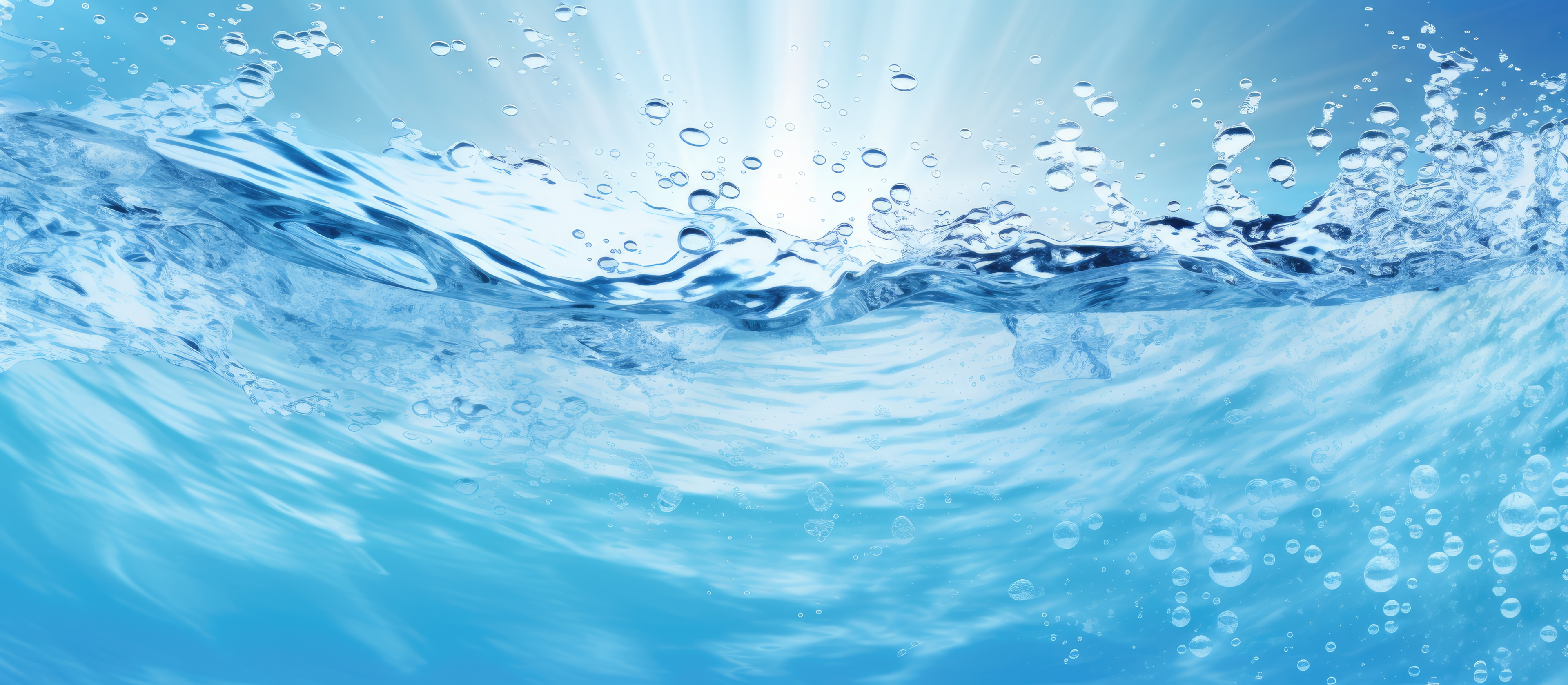
Hard Tap Water vs. Soft Tap Water
Water hardness is the measure of calcium and magnesium concentration in water.
High in calcium and magnesium, hard water can enhance certain flavors. However, too much of these minerals can lead to over-extraction and a bitter taste. Hard water can also cause scale buildup in brewing equipment.
Soft water is low in calcium and magnesium. Water that's too soft might not extract java flavors as effectively as hard water, potentially leading to a flat or under-extracted brew.
Hardness to Alkalinity Ratio
Water quality isn't just about having these minerals; it's also about having the right balance.
-
Total hardness refers to the combined concentration of calcium and magnesium in water.
-
Carbonate hardness or alkalinity measures the water's buffering capacity to neutralize acid.
A proper balance between these aspects ensures that the coffee doesn't taste too acidic or too flat.
Other minerals in the water can also affect flavor profiles. For instance, water with higher sodium content might make the coffee taste slightly saltier, while water rich in bicarbonates can make the coffee taste more bitter.
Understanding and controlling the minerals in your water can be the key to consistently producing a caffeine beverage that aligns with your flavor preferences.
Which type of water makes the best-tasting coffee?
Discovering the best water for coffee requires exploring various options that can influence your brew. Let's delve into the different types of water and learn how each can help you create the best-tasting coffee.

Distilled Water
Distilled water is created by boiling water to produce steam and then condensing the steam back into water. This process removes impurities, minerals, and contaminants, resulting in pure distilled water — just H2O and not much else.
Pros:
-
Blank Slate -Distilled water is essentially a blank slate with minimal mineral content. This allows coffee enthusiasts to have precise control over the water's mineral composition.
-
Consistency -Using distilled water ensures consistency in brewing, as the lack of minerals eliminates variables that could affect extraction.
-
Less/No Mineral Buildup - Reduces the risk of scale buildup in coffee machines.
Cons:
-
Flat Flavor -The absence of minerals can lead to a lack of flavor complexity. If you brew coffee with distilled water, your cup of coffee can taste flat or one-dimensional.
-
Missing Minerals -While minerals like calcium and magnesium can be adjusted, they also play a role in enhancing coffee's taste. The lack of these minerals might result in less flavorful coffee.
Reverse Osmosis Water
Reverse osmosis is a filtration method that removes many types of large molecules and ions from water by applying pressure to it when it is on one side of a selective membrane. Minerals and other impurities are retained on the pressurized side of the membrane and the pure water passes to the other side.
Pros:
-
Purity - RO water is highly purified, making it a great starting point for customized water recipes.
-
Adjustability -Similar to distilled water, RO water allows for precise mineral adjustments.
Cons:
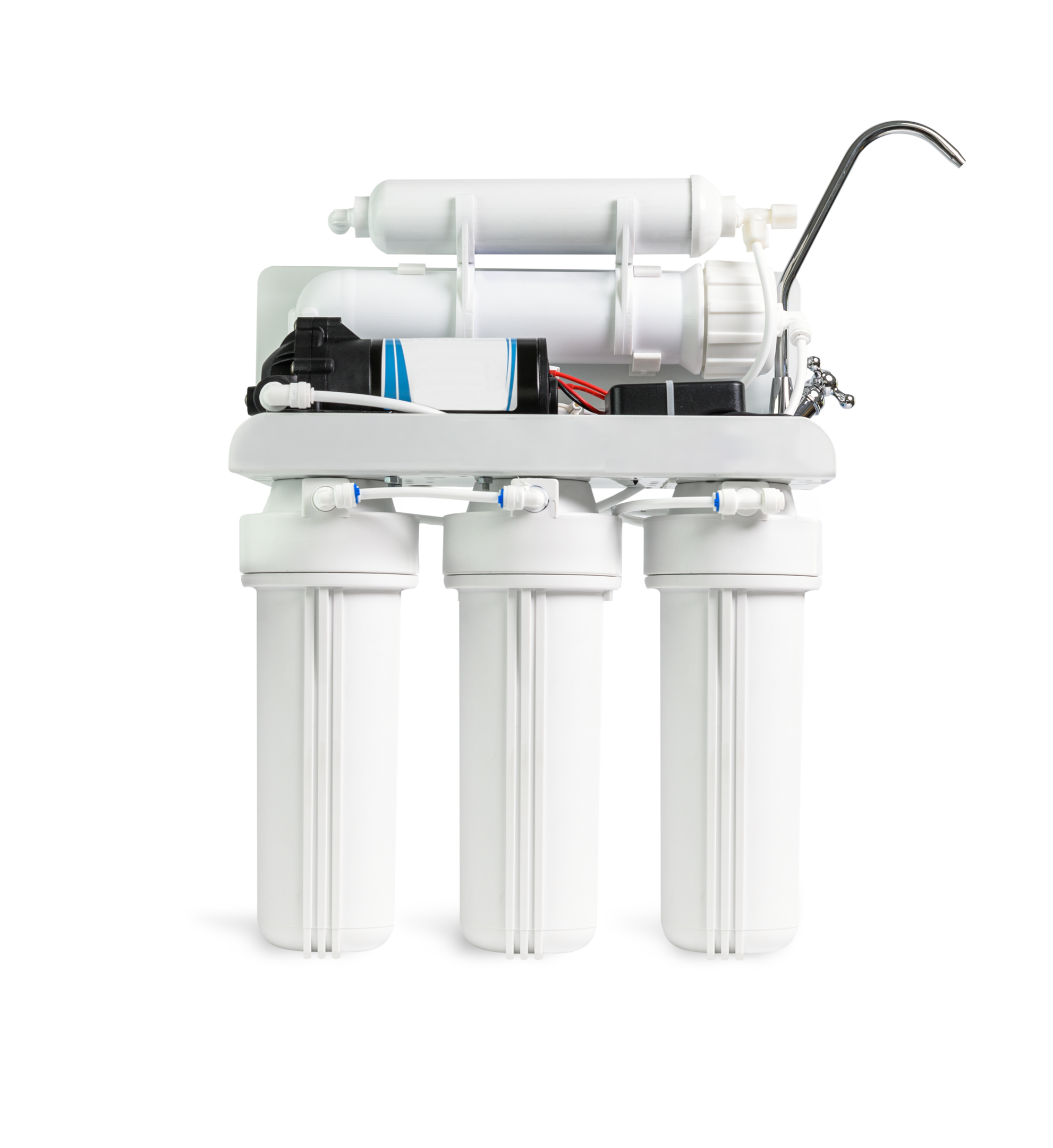
-
Mineral Removal - In RO water, essential minerals are filtered out, impacting taste and extraction.
-
Lack of Complexity -Coffee brewed with reverse osmosis water might lack the complexity and balance found in water with natural mineral content.
Purified Water
Purified water is water that has been mechanically filtered or processed to remove impurities and make it suitable for consumption. This can include methods like distillation, deionization, and reverse osmosis.
How does it differ from distilled and RO water?
While both distilled and RO water can be considered forms of purified water, not all purified water undergoes the specific processes of distillation or reverse osmosis. Purified water might retain some minerals, depending on the purification method used.
What is its impact on coffee taste and aroma?
Purified water tends to strike a balance, offering a clean base for brewing without completely stripping the water of minerals that can enhance the coffee's taste and aroma.
Alkaline Water
Understanding Alkaline Water and Its pH Levels
Alkaline water has a higher pH level than regular tap water, usually above 8. It contains alkaline minerals and compounds like bicarbonate, calcium, and magnesium.
The Influence of Alkaline Water on Coffee's Acidity and Flavor
When brewing coffee with alkaline water, the higher pH can affect the acidity of the coffee. While some coffee enthusiasts enjoy a smoother, less acidic cup, others might find that certain flavor notes are diminished.
Spring Water
Spring water originates from an underground source and flows naturally to the earth's surface. While it undergoes some natural filtration through underground rocks and sediments, it retains many of the natural minerals that are beneficial for health and flavor.
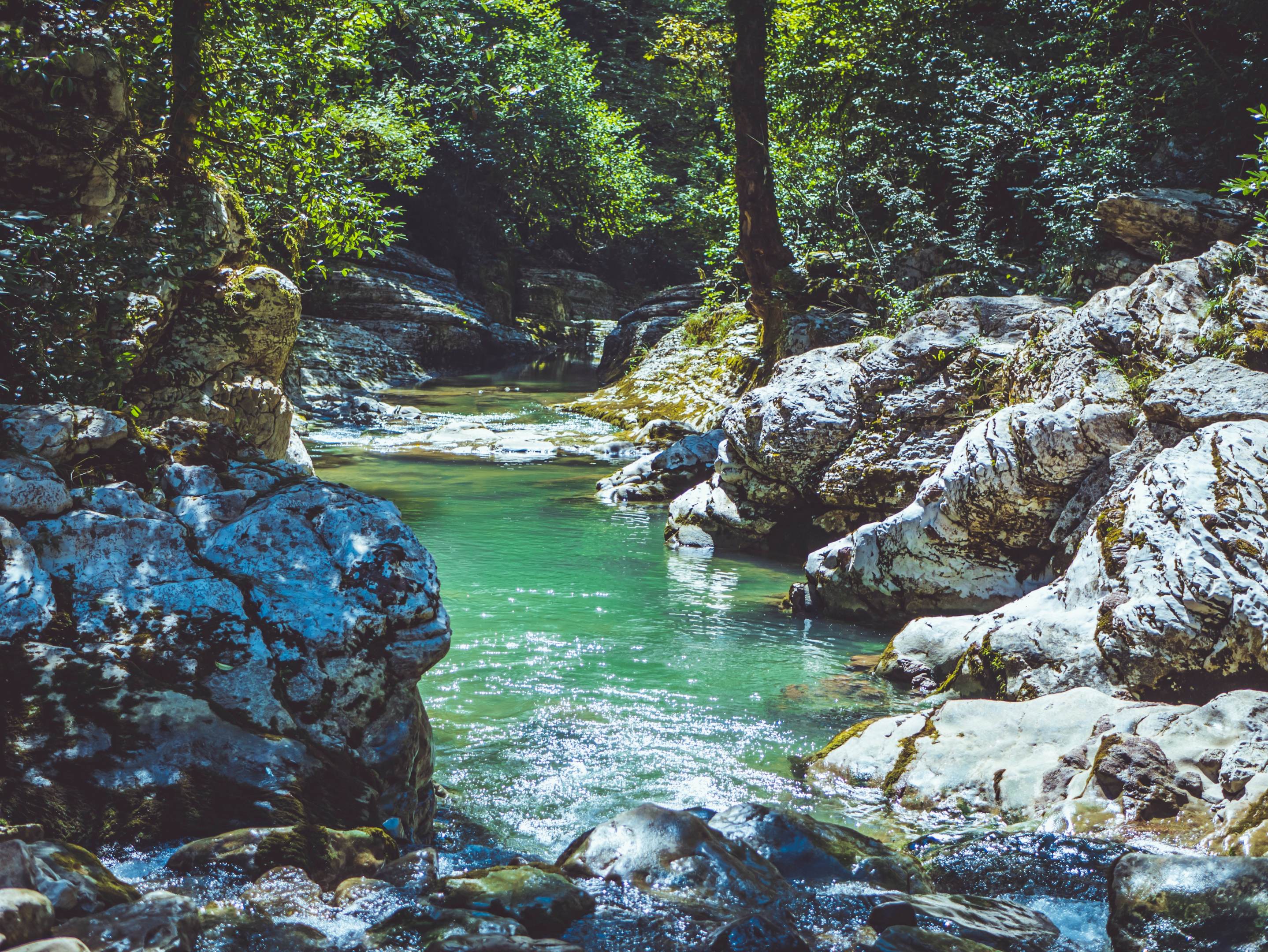
Pros:
-
Contains natural minerals that can enhance the coffee flavor profiles.
-
Typically free from many contaminants found in regular tap water.
-
Can provide a unique taste due to its mineral composition.
Cons:
-
The mineral content can vary from one source to another, leading to inconsistent brews.
-
Some springs may contain contaminants, so it's essential to ensure the source is reputable.
-
Tend to be more expensive.
Filtered Water
Filtered water is well or tap water that has been passed through water filtration systems to remove chlorine, sediments, and other contaminants. The filtration can range from carbon filtration to more advanced systems that remove a wide range of impurities.
Pros:
-
Offers a consistent water base for brewing.
-
Removes impurities that can negatively impact the taste and aroma of coffee.
-
Generally more accessible and affordable than other types of water.

Cons:
-
Depending on the filtration system, all the minerals — including the ones beneficial for brewing —might also be removed.
-
Requires periodic filter replacements and maintenance.
-
Not all water filtration systems remove the same contaminants, so it's crucial to choose the right system for your water source.
Fresh Water
Fresh water has a low concentration of dissolved salts (salinity), typically found in lakes, rivers, and streams. It contrasts with saltwater or seawater, which has a higher salt content.
Pros:
-
If sourced from clean and uncontaminated areas, it can provide a natural and flavorful base for coffee.
-
Often contains a balanced mineral content beneficial for brewing.
-
Readily available in many regions.
Cons:
-
The quality and taste can vary depending on the source, leading to inconsistent brews.
-
Surface water sources, like rivers and lakes, can be susceptible to pollution and contaminants.
-
May require additional filtration or treatment before being suitable for brewing.
Water Comparison and Analysis
This table provides a concise overview of various water types recommended for coffee brewing, highlighting their key characteristics and benefits. Each type is evaluated based on criteria such as flavor, aroma, consistency, and overall coffee quality.
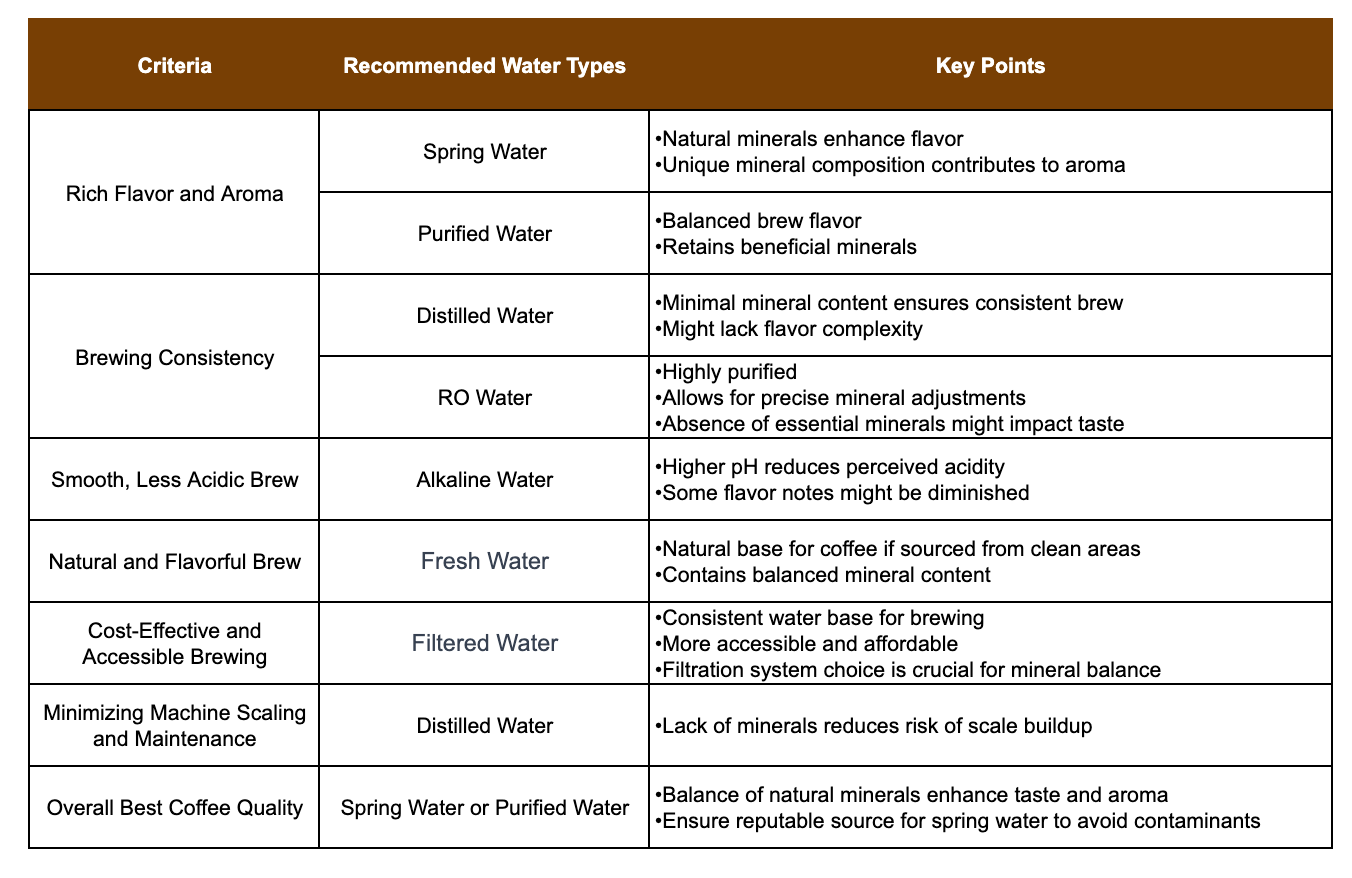
Quality Water: Practical Tips for Brewing the Best Coffee
If you want your coffee to taste good, steer clear of tap water. Here are some actionable tips to help ensure that the water you use for brewing water is nothing short of perfect.
Craft Your Own Water Recipe
While many coffee enthusiasts rely on pre-made water formulas available in the market, there's a growing trend towards crafting DIY water recipes tailored to individual preferences.
When creating your own water recipe, remember that consistency is key; always measure mineral additives such as Third Wave Water accurately and use the same water source to maintain a uniform taste profile in every brew.
Unsure about crafting your own water recipe? This resource from the Specialty Coffee Association of America (SCAA) is a good place to start.
Boiling: More Than Just Heating
As water boils, dissolved gases like oxygen are released, which can influence the extraction process.
For optimal results, always bring water to a rolling boil and then let it cool to your desired brewing temperature, typically between 195°F to 205°F.
Doing this ensures not only the right temperature but also the right water composition for the perfect cup.
The Global Perspective: Water Quality Around the World
Water, being a universal solvent, varies in composition based on its source. From the icy glaciers of the Himalayas to the underground springs of Europe, water's chemical composition and purity can differ vastly. When it comes to brewing coffee, these differences can significantly influence taste, aroma, and quality of the final cup of coffee.
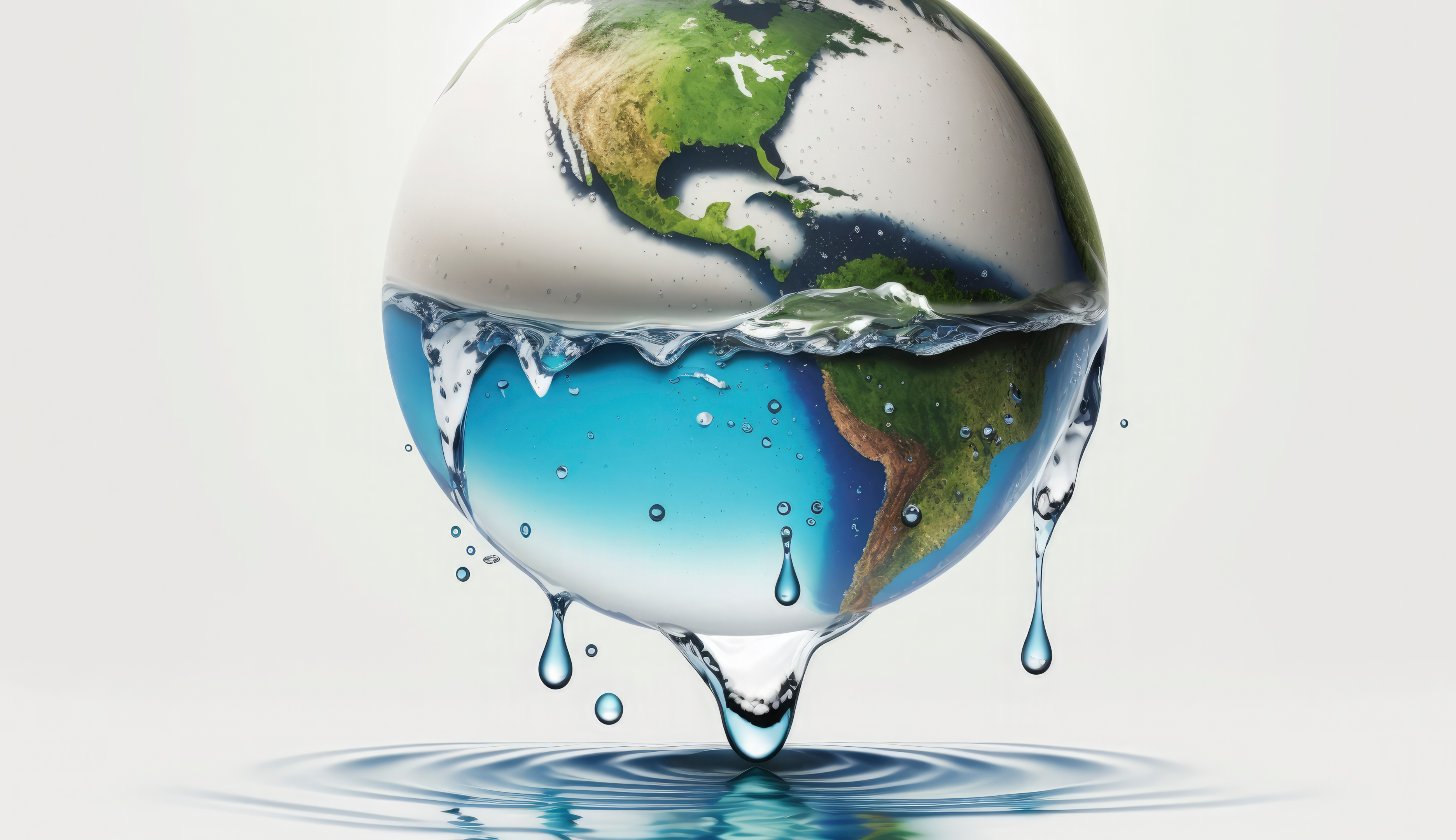
Every region has its unique water profile, characterized by varying levels of minerals like calcium, magnesium, and bicarbonates. Here's how water from varying regions affects that cup of coffee.
-
Iceland's pristine glacial water, known for its purity, imparts a unique clarity to the coffee. The softness of the water allows for a smooth extraction, highlighting the coffee's natural flavors and resulting in a robust and refreshing cup.
-
New York's tap water, sourced from protected reservoirs, is naturally filtered and contains minerals that enhance the coffee's taste. This water quality, combined with minimal chlorine treatment, contributes to a coffee that's balanced, full-bodied, and flavorful.
-
Melbourne's water, primarily rainwater with low salinity, is among the cleanest globally. This purity means less treatment with flavor-affecting chemicals. As a result, coffee brewed with Melbourne's water tends to be sweet, rounded, and allows the coffee's intricate flavors to truly shine.
-
London's tap water is notably hard and can impact the equipment used for brewing. However, when properly filtered, this water can produce a delightful coffee blend with notes of caramel, toffee, and citrus. The difference between using bottled water and tap water for brewing in London is astonishing, with the former often producing a clearer and more flavorful cup.
From Good Cup to Great Cup
Every aspect of water can influence the extraction process, highlighting or masking certain flavor profiles of the coffee beans. Different regions, with their unique water compositions, can produce varied taste profiles, even when using the same beans.
Coffee shops worldwide face the challenge of maintaining consistency in their brews, given the variability in water quality. Yet, many have risen to the occasion, employing advanced filtration systems and regular equipment maintenance to ensure every cup they serve meets their brand's standards.
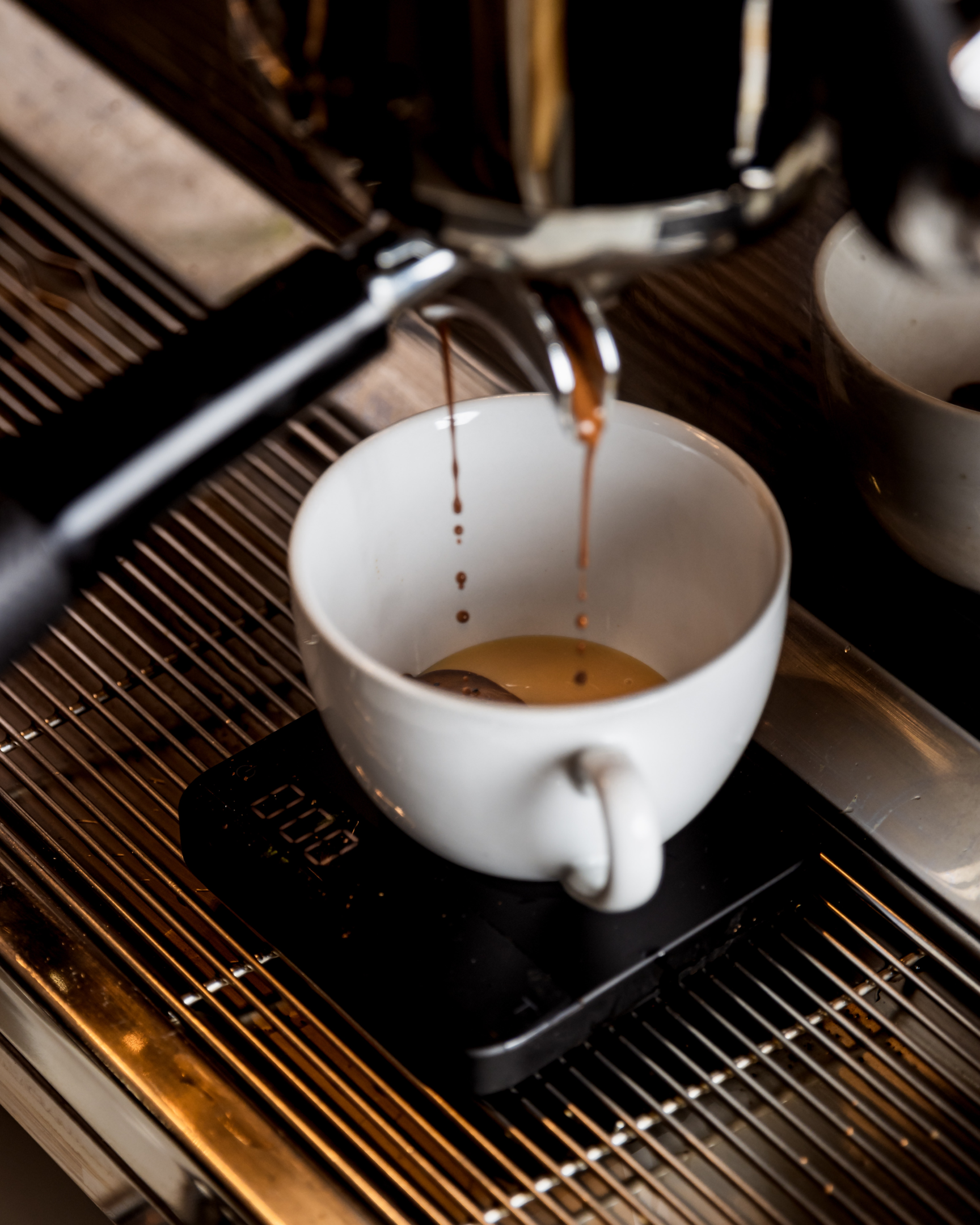
If you're a passionate coffee enthusiast, it's imperative that you understand the role of water in making better coffee. We encourage you to experiment with different water sources, perhaps even crafting custom water recipes, to achieve water quality that complements your favorite beans.
So, as you brew coffee and perfect your concoction, keep in mind that that elusive perfect cup might just be the right water away.





Leave a comment